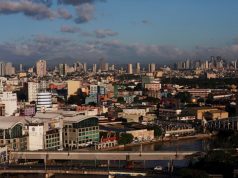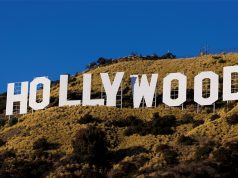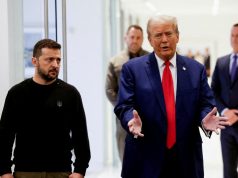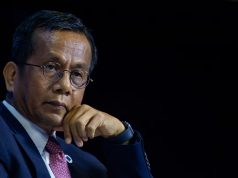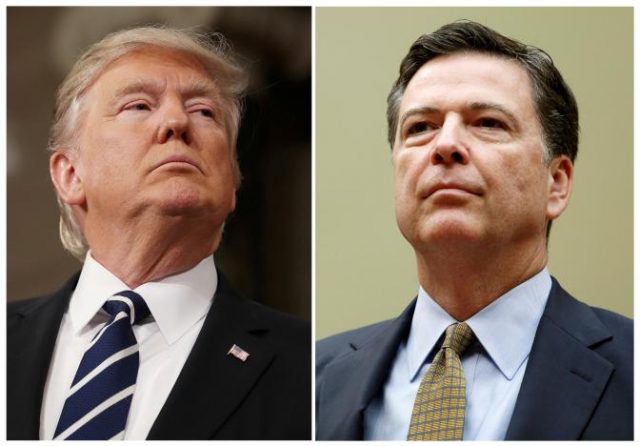
WASHINGTON — Former FBI Director James Comey will testify next Thursday before a U.S. Senate panel investigating Russia’s alleged meddling in the 2016 U.S. election, in a hearing that could be difficult for President Donald Trump.
In his first public appearance since Trump fired him on May 9, Comey will address the Senate Intelligence Committee on June 8. He will speak at both an open session and behind closed doors, which would allow him to discuss classified information, the committee said.
Allegations that Russia may have helped Trump win the 2016 presidential election and questions about possible collusion by members of his campaign are being investigated by several U.S. congressional committees as well as by the Justice Department.
Comey is expected to be asked about conversations in which Trump reportedly pressured him to drop an investigation into former national security adviser Michael Flynn, one of several Trump associates who are drawing scrutiny about Russia and last year’s U.S. election.
Russia has repeatedly denied any effort to interfere in the U.S. election, and Russian President Vladimir Putin on Thursday said some Russians might have acted on their own without their government’s involvement.
Trump has denied any collusion between Russia and his campaign and has repeatedly questioned the U.S. intelligence finding that Putin led an operation that included computer hacking, fake news and propaganda intended to swing the election in Trump’s favor over Democratic rival Hillary Clinton.
Comey was leading the FBI’s probe into the allegations, and his firing sparked a political uproar. Facing rising pressure, the Justice Department earlier this month named another former Federal Bureau of Investigation chief, Robert Mueller, as a special counsel to investigate the allegations.
On Wednesday, the House of Representatives Intelligence Committee, which is also looking into the allegations, approved subpoenas for Flynn and Trump’s personal lawyer, Michael Cohen, in connection with its probe.
The committee’s Republican chairman, Representative Devin Nunes, who had recused himself from the panel’s Russia probe, also approved subpoenas to the CIA, FBI and National Security Agency for information relating to the “unmasking” of the names of Trump campaign advisers inadvertently picked up in top-secret foreign communications intercepts.
Committee aides complained he had acted unilaterally, and the top Democrat on the panel, Representative Adam Schiff, said Nunes’ actions violated his recusal decision.
“Commitments to recuse himself have not been fully honored,” Schiff told MSNBC.
He also said the U.S. intelligence agencies were cooperating with the House panel and that it was therefore unclear why Nunes would issue the subpoenas, which constitute a formal demand for information.
In a further sign of strain between the two, Schiff told the network it was up to Republican House Speaker Paul Ryan to stop such conduct and he believed Nunes should delegate his subpoena power to demand such information.
Schiff also rejected Putin’s suggestion that patriotic Russians, rather than the Russian state itself, could have staged cyber attacks to influence the U.S. election.
Trump on Thursday backed Nunes’ efforts to investigate actions by U.S. security and other officials who had served under previous President Barack Obama.
“The big story is the ‘unmasking and surveillance’ of people that took place during the Obama Administration,” Trump said in a tweet.





